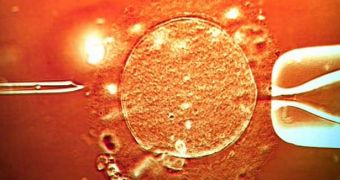Between 1978 and 2012, in vitro fertilization led to the birth of 5 million children worldwide. A new study examines the link between this method of conceiving and the incidence of autism and mental retardation.
Researchers say that, although in vitro fertilization (IVF, for short) treatment appears to not influence the number of autism cases reported worldwide on a yearly basis, it can be held accountable for an increase in mental retardation risk.
Despite being fairly small, this increase in a child's risk of developing mental retardation is nonetheless statistically relevant, Newswise reports.
The scientists who researched the link between IVF and said conditions base their claims on data collected by looking into the medical records of 2.5 million children born in Sweden between the years 1982 and 2007.
Over 1 percent (1.2% to be more exact) of these children were born following one or another IVF procedure, the same source informs.
“To the best of our knowledge, this is the largest study examining the relationship between specific IVF procedures and autistic disorder and mental retardation, examining the full range of IVF procedures,” the researchers claim.
The IVF procedure identified as the main contributor to the increase in mental retardation risk is intended to manage male infertility.
During this procedure, doctors collect male gametes and inject them into an egg, hoping that the latter would be fertilized.
“Our study shows treatments developed to manage male infertility are associated with an increased risk for developmental disorders in offspring,” Dr. Avi Reichenberg, a specialist presently working with the Institute of Psychiatry at King’s College London, points out.
All in all, the researchers maintain that their findings are encouraging, and the couples need not worry all that much about how IVF treatments might affect the mental development of their children.
A paper detailing the results of this investigation was published in today's issue of the Journal of the American Medical Association.

 14 DAY TRIAL //
14 DAY TRIAL //